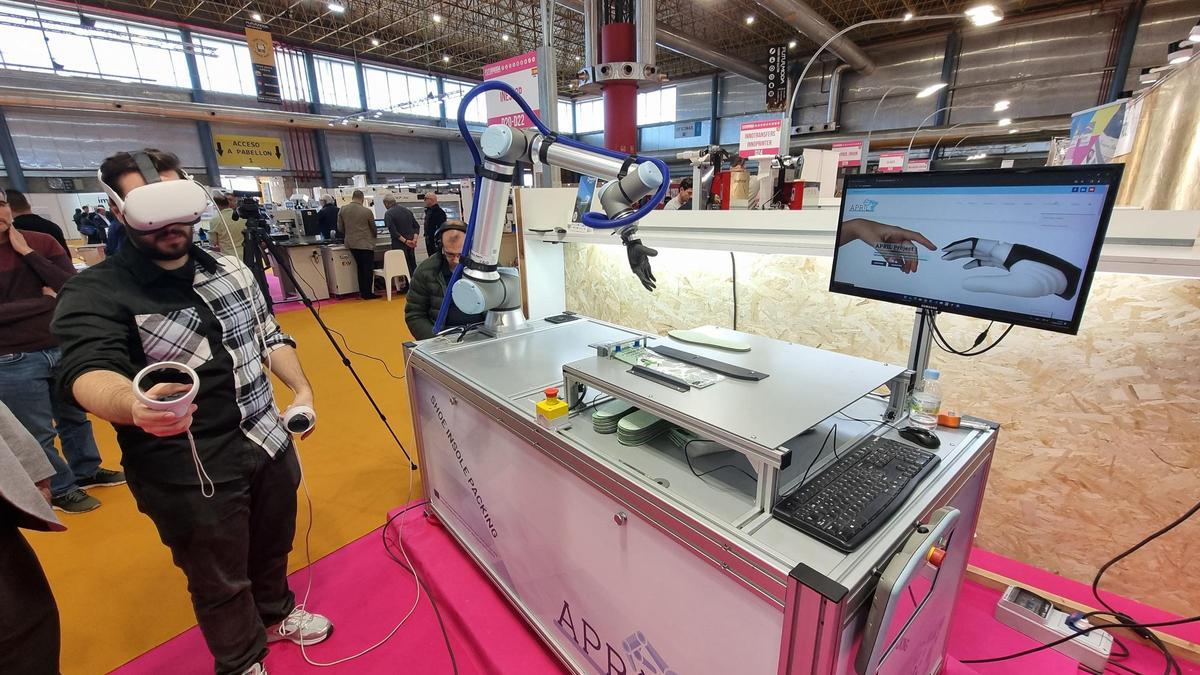Uso de la inteligencia artificial para optimizar las operaciones de rescate de Open Arms

The use of artificial intelligence is becoming an essential tool to transform efficiency in various industries, and rescue operations are no exception. In the context of the humanitarian mission of Open Arms, an innovative system has been developed that employs machine learning techniques to optimize fuel consumption and improve the effectiveness of rescue missions. This technological approach not only aims to increase operational efficiency but also minimize environmental impact, allowing more resources to be allocated to the urgent task of saving lives at sea.
Artificial intelligence has emerged as an essential tool for improving efficiency in various industries, and rescue operations are no exception. In the context of the humanitarian mission of Open Arms, an innovative system is being applied that uses machine learning techniques to optimize fuel consumption and maximize the effectiveness of its sea rescues. This advance represents an important milestone in the integration of technology into rescue missions.
Development of the system in collaboration with UPV
A team of researchers from the Facultat de Nàutica de Barcelona of the Universitat Politècnica de Catalunya-BarcelonaTech (UPC) has begun to develop a new innovative system that uses machine learning. This system aims to reduce fuel consumption and increase the energy efficiency of Open Arms vessels, whose main mission is the protection of lives in the Mediterranean Sea.
Presentation of the FNB-Open Arms project
The project, called FNB-Open Arms, was recently presented at the port of Vilanova i la Geltrú. This is the first case of technological transfer to be carried out under the framework of the Fractus-UPC Deep Tech Hub, a collaborative environment designed to promote innovation. In this case, the collaboration will provide a system aimed at improving the navigation of the Open Arms vessel, which was previously a 37-meter-long tugboat.
Optimization of fuel consumption
Martín Maretta, technical director of Open Arms, emphasized that the incorporation of this new technology will allow for the measurement of fuel consumption, thus optimizing operational efficiency and reducing both costs and pollutant emissions. In addition, this technological integration will help comply with current environmental regulations and facilitate more effective planning of maritime routes.
Real-time measurement system
The real-time measurement system promises to save between 10% and 15% of the fuel used by the vessel. Despite factors such as speed and sea conditions affecting consumption, Open Arms typically uses between 3,000 and 3,500 liters of fuel daily. This reduction in fuel usage represents a significant improvement in terms of efficiency and sustainability.
Future projection and continuous improvements
Xavier Martínez Garcia, the researcher in charge of the project, stated that there is currently no similar system on the market that combines machine learning with monitoring of factors that affect navigation. The first version of the system is expected to be ready within a year, and continuous improvements are anticipated which will allow this technology to be applied to other vessels.
Monitoring and data analysis
The system under development is based on machine learning technologies, and it will focus on identifying the factors that influence fuel consumption during rescue operations. In an initial phase, factors such as the ship’s consumption, speed, sea conditions, and necessary trim adjustments will be monitored to optimize its performance in the water.
Reduction of environmental impact
The system not only seeks to save fuel but also to decrease the environmental impact of Open Arms, especially in the marine environment. With the installation of additional sensors, such as flowmeters funded by Fractus, crucial data can be collected that will influence decision-making for navigation. This will ensure that operations are not only more economical but also more environmentally friendly.
Resources allocated to saving lives
Rubén Bonet, CEO and co-founder of Fractus, observed that this project not only focuses on fuel consumption but also seeks to strengthen Open Arms’ capacity to allocate more resources to its vital rescue work at sea. With the optimization of operational resources, the organization will be able to invest savings in other actions related to maritime rescue.
Thus, the implementation of artificial intelligence in Open Arms’ operations represents a decisive step towards a future where technology and humanitarian aid intertwine to maximize the effectiveness and sustainability of its missions in the search for lives at risk.
Optimization of Rescue Operations with AI
The integration of artificial intelligence into Open Arms’ rescue operations represents a significant advancement in the way these humanitarian missions are carried out. The use of technologies like machine learning allows the non-governmental organization to analyze in real time factors such as fuel consumption, speed, and sea conditions, thus optimizing its operational efficiency and reducing costs. This innovative approach not only benefits the organization economically but also contributes to a reduced environmental impact during its operations at sea.
The system developed by the faculty of Nàutica de Barcelona seeks to measure fuel consumption and advise on the best way to navigate, which will likely allow for savings of between 10 and 15% of fuel. This is crucial, as significant savings translate into more resources allocated to rescue and salvage actions, reaffirming Open Arms’ main mission: to save lives at sea.
Moreover, the use of sensors and equipment installed on the vessel will provide valuable data that will facilitate the early identification of technical issues, extending the lifespan of the engine and ensuring the ship’s operability. The implementation of this system not only has the capacity to improve maritime route planning but also to align Open Arms with environmental regulations, adding additional value to the ethical commitment that the organization seeks to fulfill in its missions.
Finally, this project symbolizes a model of collaboration between technology and humanitarian action, where innovation becomes an indispensable ally in facing the challenges of the migration crisis. As progress is made in this area, the technological solutions presented could be applicable to other vessels and organizations, enhancing the impact of rescue operations in the future.






